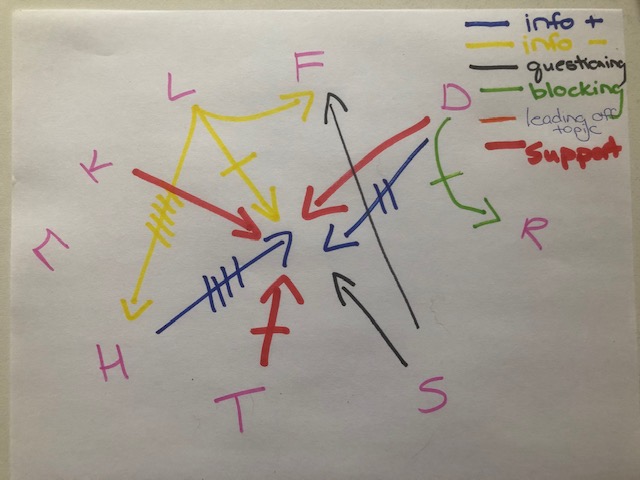I have just attended a free workshop hosted by the Human Rights Clinic. It was wonderful!!! I highly recommend people sign up. Below are my notes that I took during the workshop. I hope people find it helpful.
************************************************
It is our responsibility to prove discrimination at a hearing. The HRT does not investigate.
Decisions are final and binding but not enforceable. We can take the decision to the BC Supreme Court to enforce it.
Discrimination is negatitve treatment or impact that’s connected to a person’s protected characteristic.
Eg. Stereotyping, unfair assumptions, bullying and harassment, singling out, profiling, exclusion, disadvantage
Discrimination can be
- Overt or subtle, intentional or unintentional (Code S.2), concerned with impact, concerned with equity and fairness) rather than sameness
- Not all different treatment = discrimination
- Sometimes treating people the same = discrimination
You don’t need to prove they intended to discriminate
** Treating people, the same can result in discrimination
(Put up the equality picture of people standing on boxes)
Section 3 lists the purpose of the Human Rights Code
2/3 of complaints are related to employment
The focus of the workshop is on employment
HRT protects us from retaliation for making a human rights complaint.
Discrimination can happen outside of employment hours. As long as it is connected to the workplace. For example, drinks at a bar with co-workers after hours, or a weekend conference.
Employer must resolve all discrimination complaints. They must respond with action all claims of discrimination. They are liable for the discrimination.
Individuals can also be held accountable. High degree of personal responsibility. Eg. Sexual harassment.
Complainant must prove they have the characteristic
Need only to be A FACTOR in the negative treatment
Need not be the only or most important factor. Must be connected.
Most are undefined in the Code. Must be interpreted in line with the purpose of the Code.
The complainant goes first.
They have to prove
- They have a protected characteristic
- They have experienced some kind of negative impact in a protected area
- There needs to be a connection between the characteristic and negative treatment of impact
Respondents Case
They need to prove:
- Treatment was justified
- There is a reasonable explanation
- Bona fide occupational requirement
- Cannot be accommodated without undue hardship
Facts will be enough to file a complaint, do not guarantee the claim would be successful
A respondent may have a non-discriminatory explanation for their conduct (meaning there ‘s no connection between their conduct and a protected characteristic)
Or they may have a justified reason for their conduct
Evidence and Proof
Standard of proof = balance of probabilities. Prove it’s more likely than not. It’s not proof “beyond a reasonable doubt”
Must look at circumstantial evidence
The facts support a reasonable inference
You can win even without a smoking gun
Circumstances that may justify drawing an inference of discrimination – timing of events, statistics, experience of others
Must convince the Tribunal that the inference of discrimination is more than likely than the respondent’s explanation
The complainant has the burden to prove their case
Even if you don’t have documents or witnesses, you can still win. It’s harder, but they can still be successful. They will assess the credibility of the witnesses. Who they believe. What is the most likely version of events. It can be difficult, but very much possible.
Physical Disability – perceived of permanence or persistence, be involuntary, affects a person’s abilities
Mental Disability – involuntary, permanence or persistence, mental illness, learning disability, addictions, affect a person’s abilities
Many people are unrepresented without lawyers
Adverse Effects Discrimination (not direct) but the impact
In the context where everyone is being treated the same – If your policy, rule, standard, requirement or practice creates a negative impact on a person due to their disability you must be prepared to justify that policy, rule, standard, requirement, or practice as bona fide and reasonable.
Duty to Accommodate
Employer must show that it could not have done anything else reasonable or practical to avoid the negative impact on the individual
Employer must take all reasonable steps to accommodate
Goal is to ensure that an employee who is able to work can do so
Employer must give a serious consideration to how employee can be accommodated
Requires an individualized case-by-case approach
Must be approached with common sense and an open mind
Flexibility is key
Accommodations are as individual as the people seeking them. Context is important.
Examples of accommodations: Different or lighter duties, toleration of absences, adjustment of schedule, change in environment, staff transfers, unpaid leave, time off to attend treatment or counselling.
Reasonable accommodation doesn’t mean perfect accommodation
Accommodation related to NEEDS and not WANTS
A shared obligation – employee must be involved
Employee must provide necessary information, participate in meetings and discussion, cooperate and facilitate the accommodation process
If a complainant has rejected a reasonable proposal, the respondent has met its duty to accommodate and the complaint will be dismissed.
Undue Hardship
Might involve expense, inconvenient, and or disruption as long as it does not unduly interfere with its business.
The burden is on the employer to show that it has offered a reasonable accommodation, and any further accommodation would be an undue hardship.
Factors: cost, economic conditions, size of employer’s operation, interference with rights of other workers, safety/risk
(Crismer, SCC 199) – Undue hardship
Duty to Inquire
Employer may have a duty to inquire as to the existence of a disability, if the are aware of ought to be aware must inquire before making an adverse decision based on performance.
HRC has webinars posted on their website to watch. In their audio and video section.






